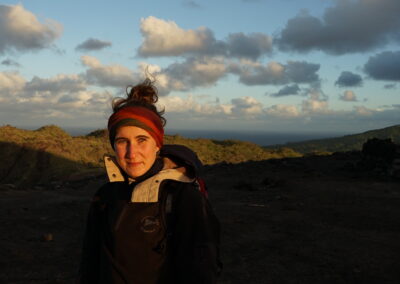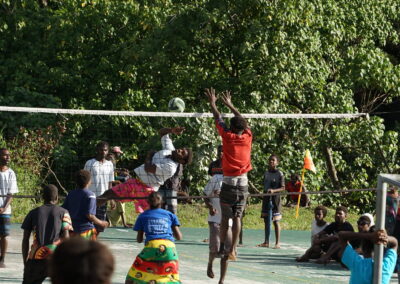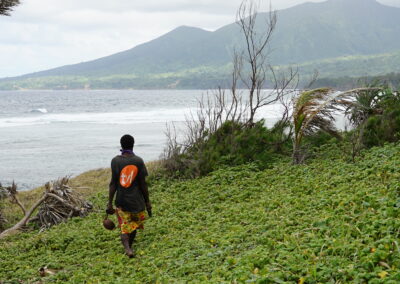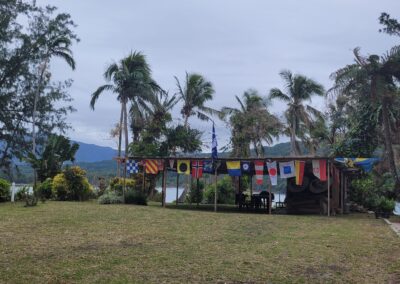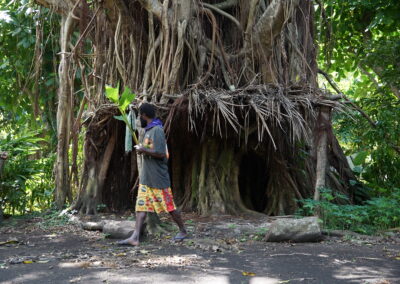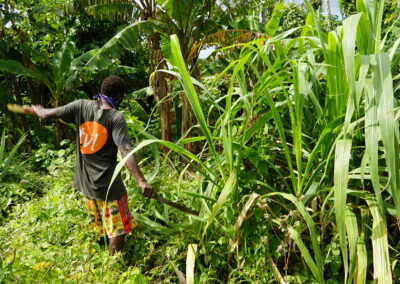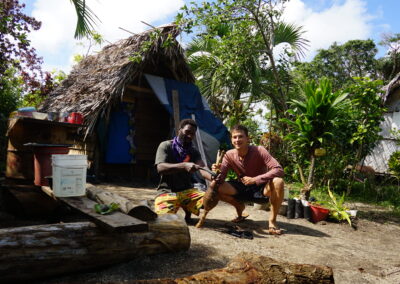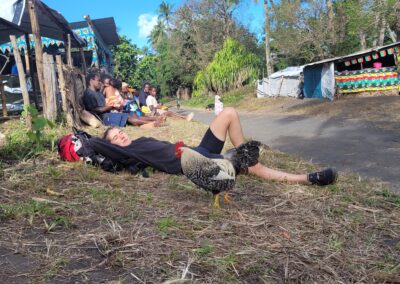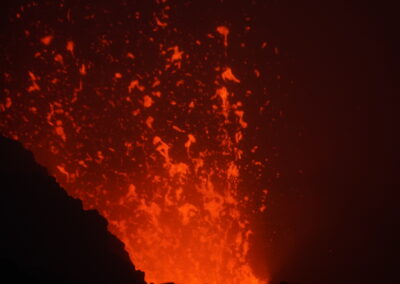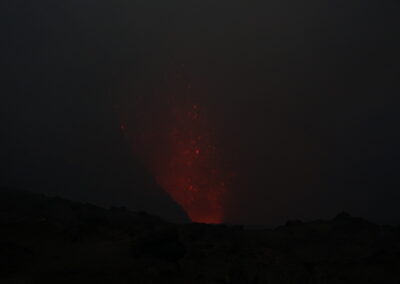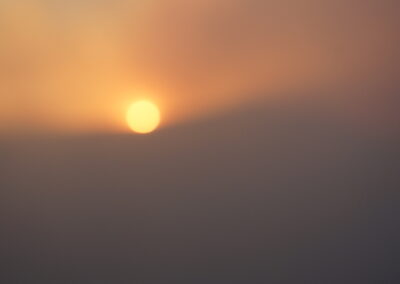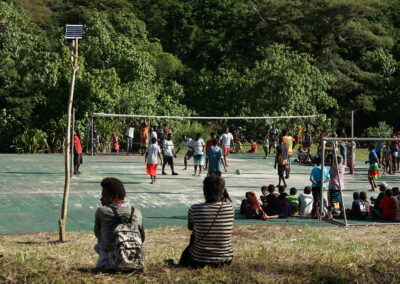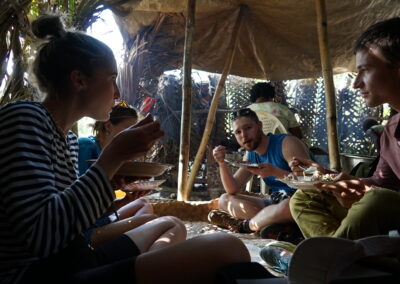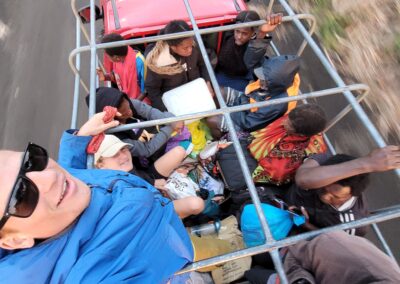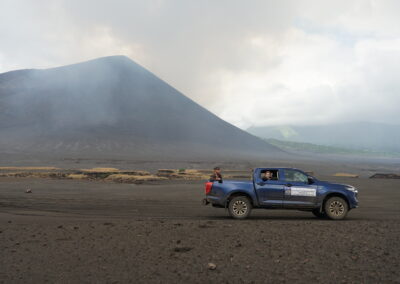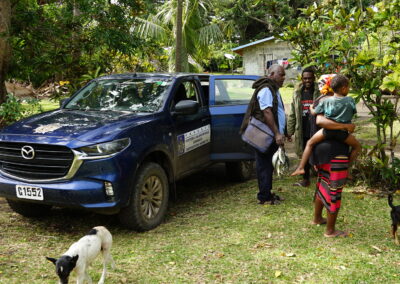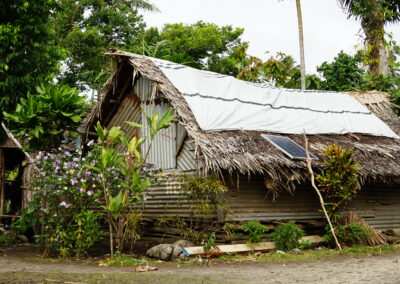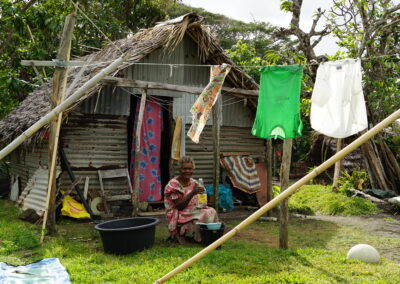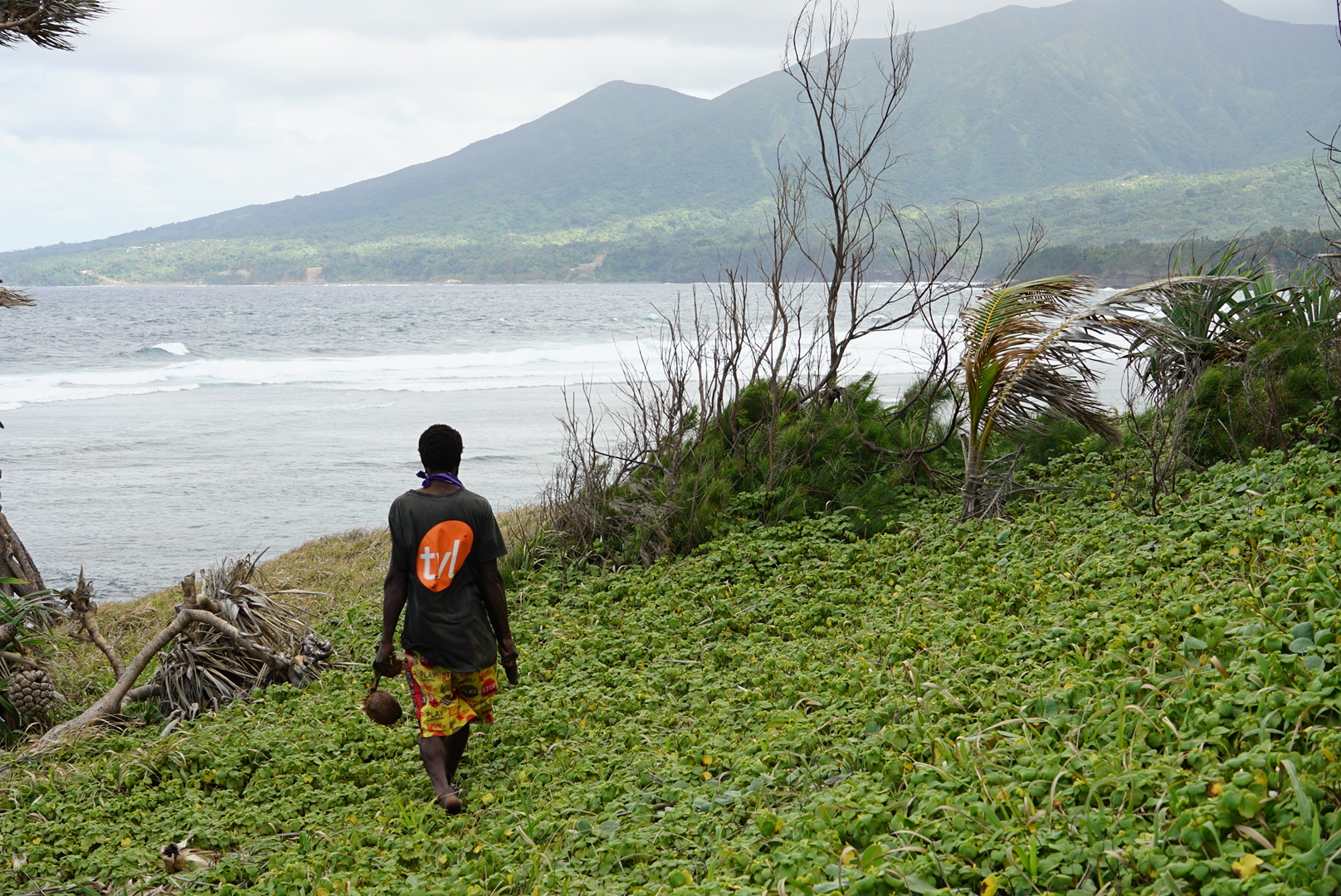
The two and a half day crossing from New Caledonia to Vanuatu passed without problems. We had waited for a favorable weather window: a low-pressure system moved eastward about 400-500 nautical miles south of New Caledonia. It „stopped“ the trade winds and gave us a three-day window with following winds from the southwest.
It was around noon, when we cast off lines in Noumea. Shortly before midnight – just in time for slack tide, we reached the pass and the open ocean. The wind was not very strong, probably blowing at 10 – 13 knots (my anemometer has been broken since the crossing from Sydney to New Caledonia), but the swell was choppy and hit the boat sideways. As a result, the sails flapped back and forth.
In order not to lose propulsion completely, we had to keep the engine running for a long time. Motorsailing, we kept a speed of four to four and a half knots. Only on the last day the wind picked up. The sails filled with air, and we were rushing north at five, sometimes even up to six knots!
In the morning I made a quick calculation and came to the result that we even had to slow down, in order not to reach Port Resolution – our destination on the island of Tanna, before sunrise.
Port Resolution is not an official port of entry, but I had applied for a special permission before departure and received permission to complete the check in this safe bay. Lenakel, the actual port of entry, on the other hand is in an absolutely unprotected bay in the west of the island. High swell and breaking waves would make a landing there very nerve-wracking and dangerous.
When Capitain Cook landed on Tanna in 1774 with his ship RESOLUTION, the men thought that a huge fire was raging on the island. However, they soon found out that this was not a fire, but a volcano! We also saw the orange – red glowing sky over the island during our last night at sea and were stunned about this spectacle! – We dropped our hook not far from the place where Captain Cook anchored at that time.
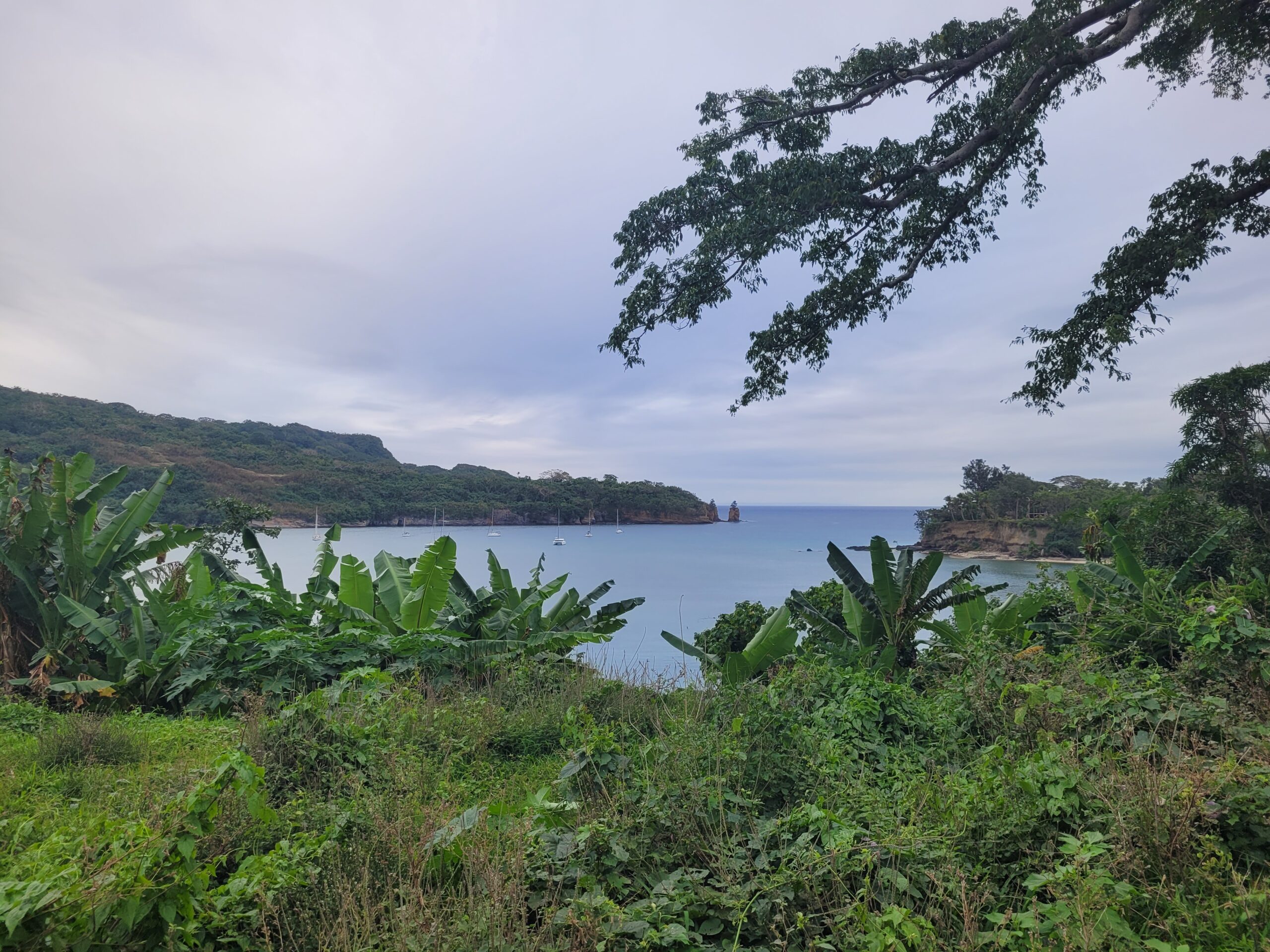

Port Resolution is a village of about 400 inhabitants and is exactly what you would expect from a traditional Melanesian village: Through a narrow path along the beach, we arrived at the road that led to the village. To our surprise, almost everyone – even the little school kids, spoke pretty good English.
It didn’t take us long to learn the whereabouts. A man named Stanley – a stage name that is easier to remember – is responsible for the boat people. He helped us to establish contact with the authorities and organized that the officials from customs would come a few days later.
Everyone had their tasks and went about their business during the course of the day. When we walked through the village, the inhabitants were hardly disturbed, we greeted friendly, had nice chats with the adults and played with the children. We were neither strangers from whom one withdrew shyly, nor tourists to whom things were constantly offered for sale. We were treated like neighbors – as a part of the community!
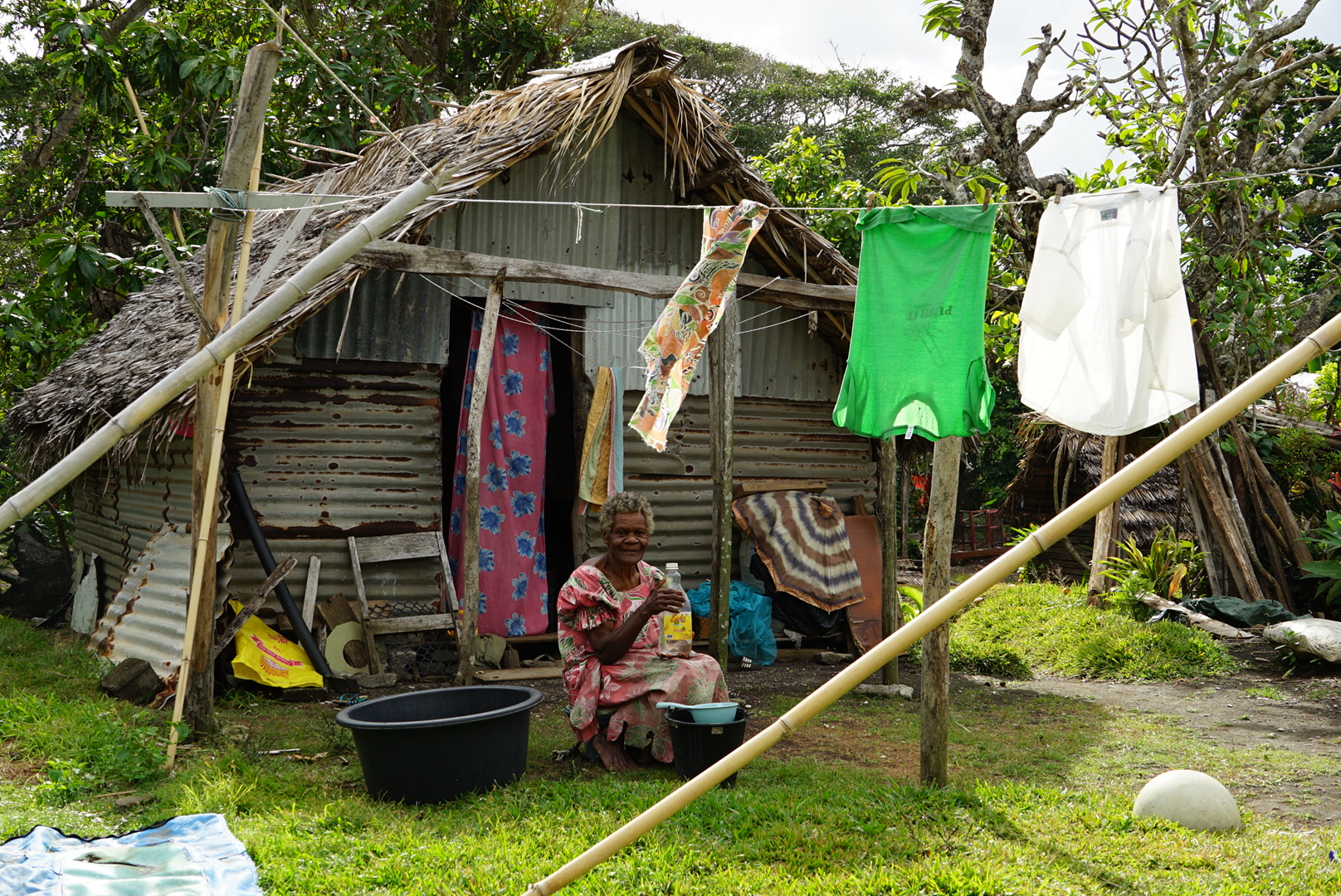

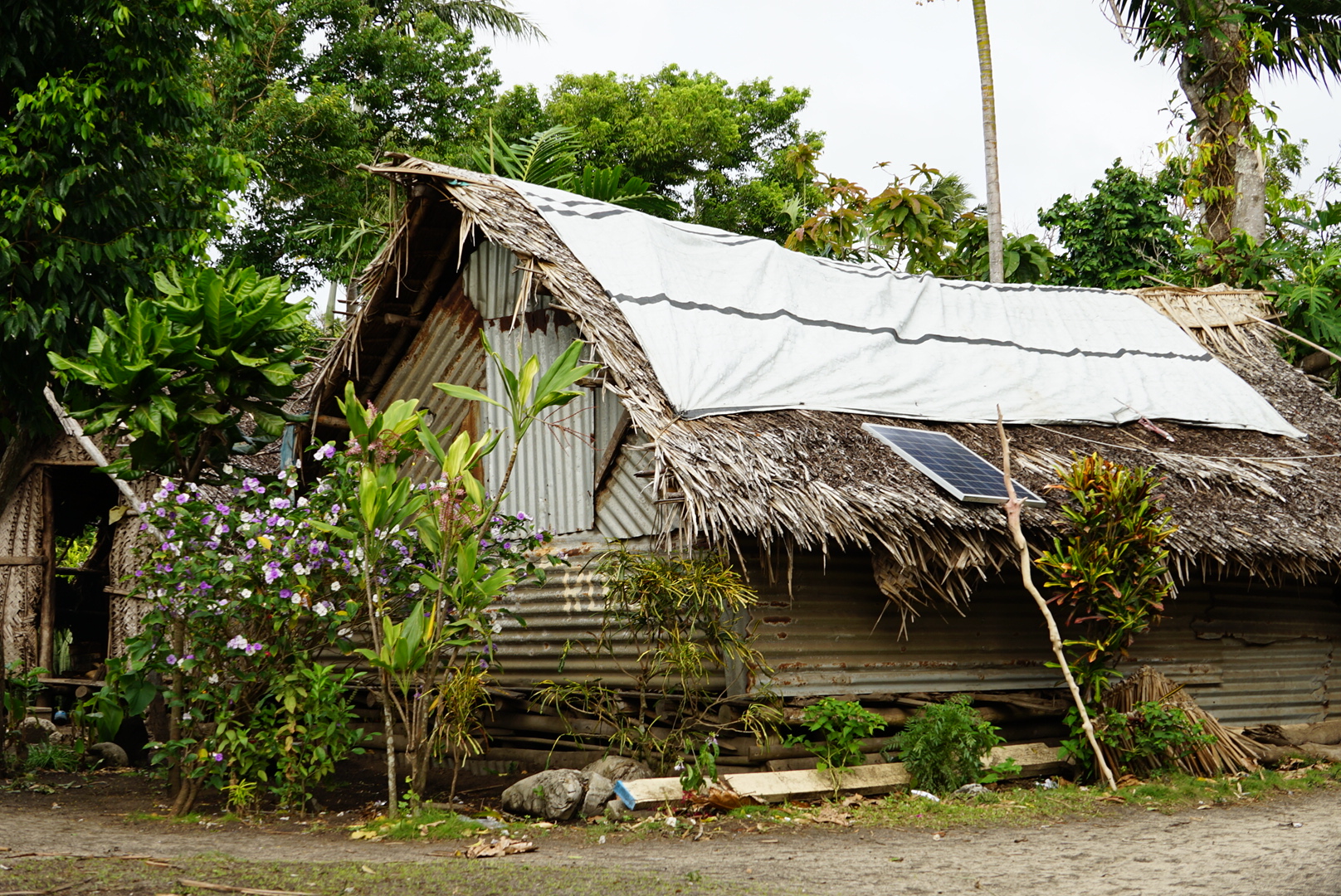

When the customs people came, we took the opportunity to hitch a ride on their way back to the other side of the island. We had no cash or sim cards and all that was a two-and-a-half-hour pickup ride away in Lenakel. The road actually can hardly be described as a road: It is a bumpy, rocky dirt road that first winds through the jungle, then crosses an open flat plain past the volcano, and finally winds its way over the mountains to the west side of the island in incredibly steep hairpins.
On the way we repeatedly made small stops and the customs officers sold the catch of the Port Resolution’ fishermen.
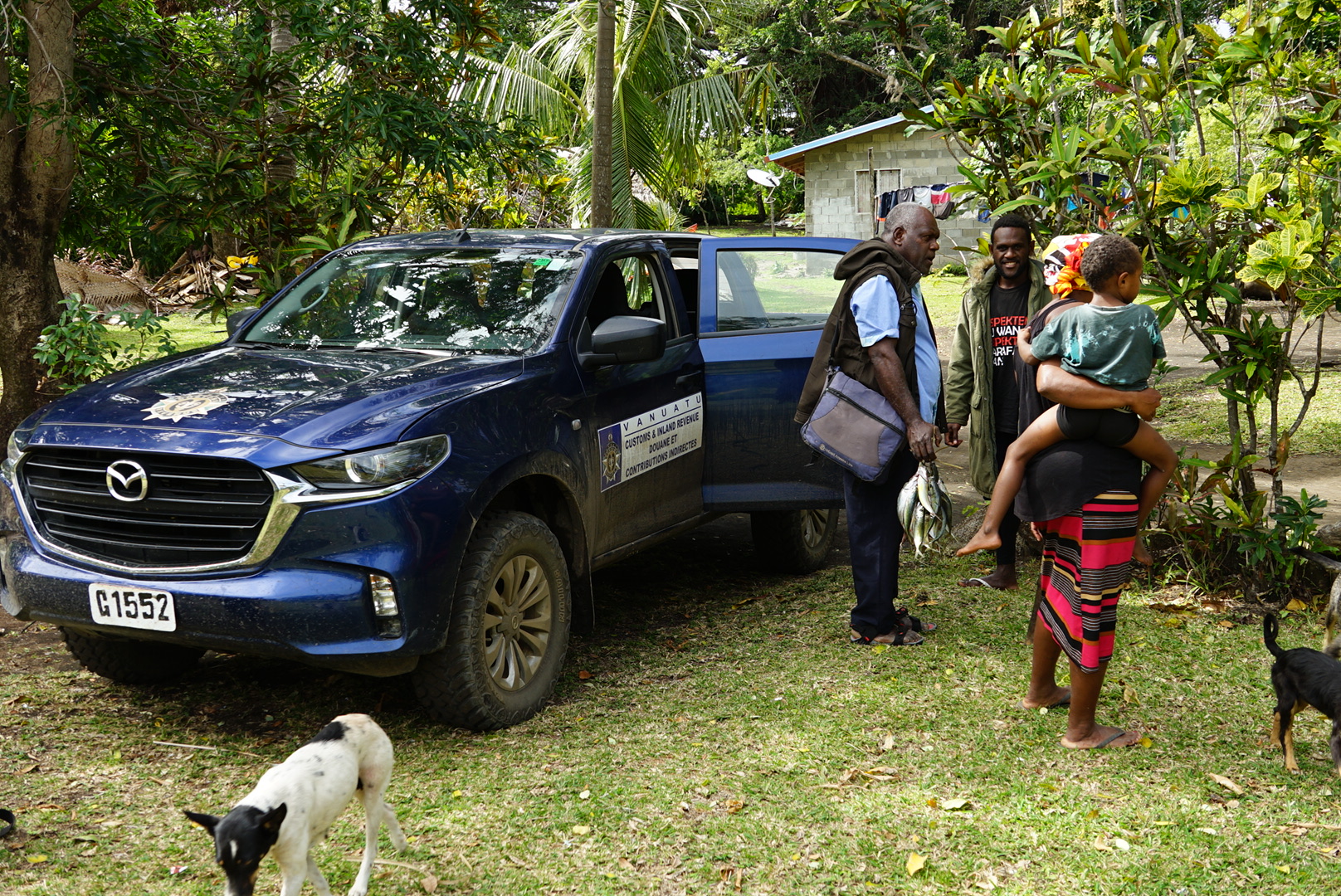

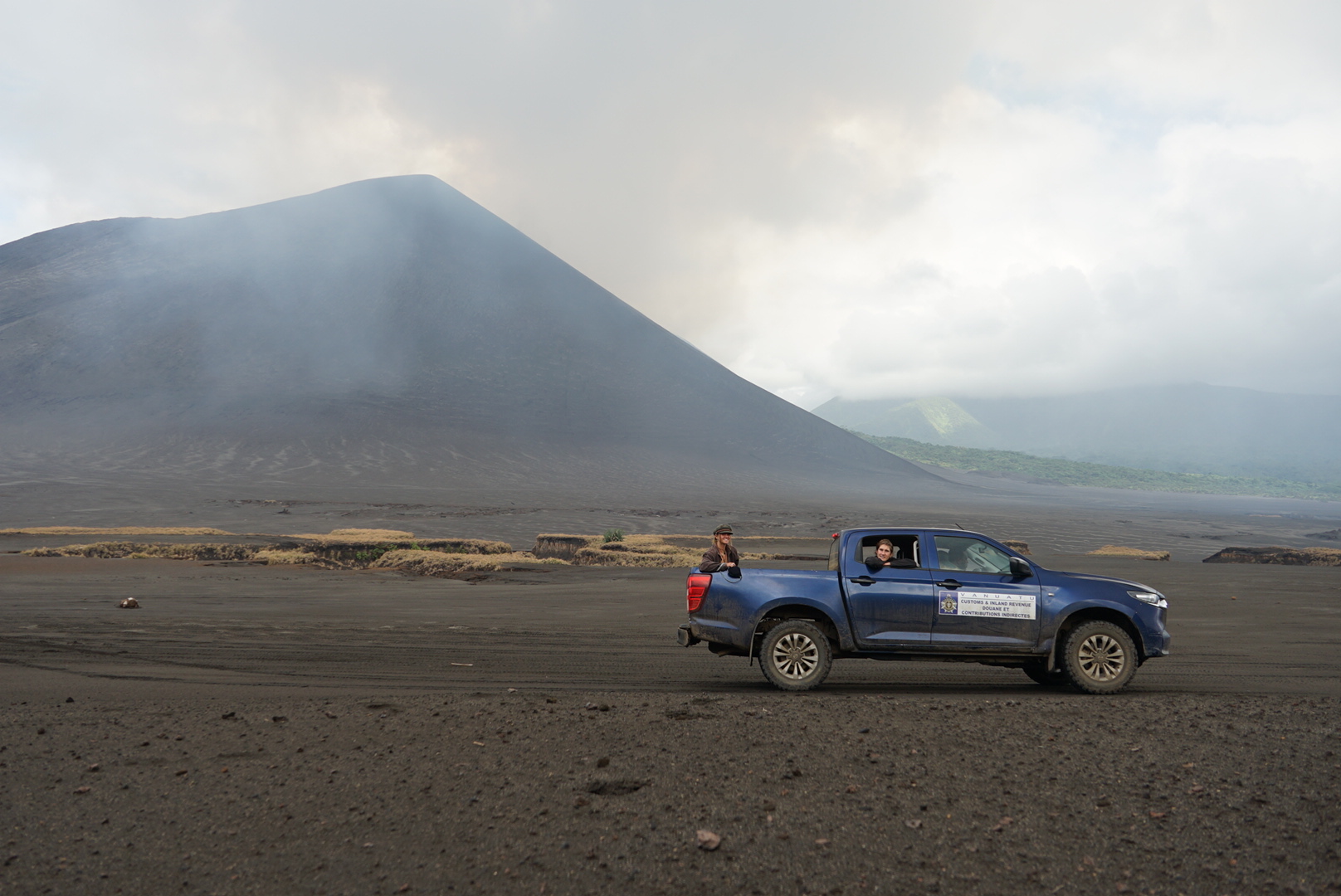

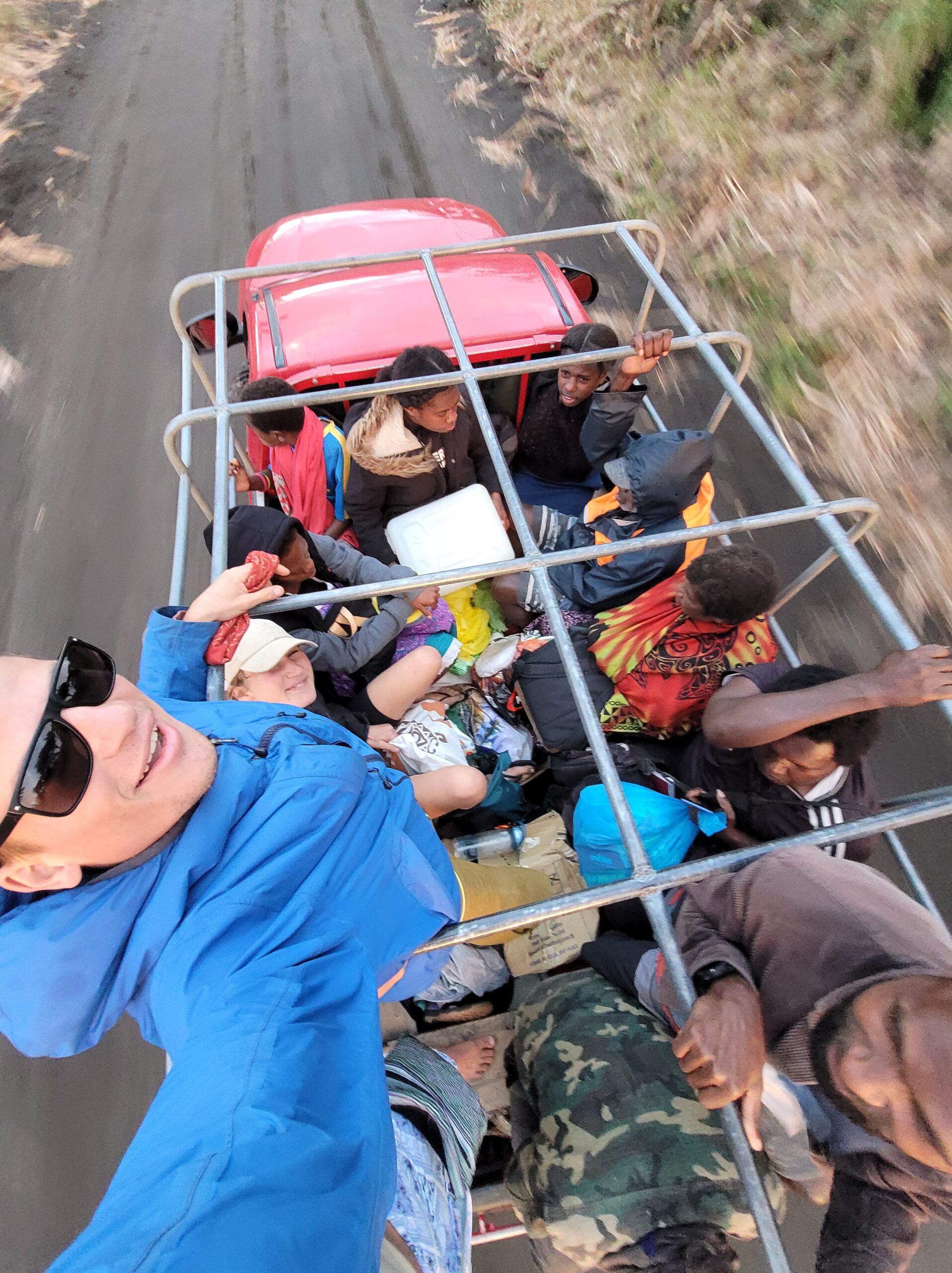

The islands highlight is the active volcano Mount Yasur: In the morning we hiked from Port Resolution, to the village of Iguaramanu, which is located at the foot of the volcano. The island was celebrating a week of festivals between the international Children’s Day and the Vanuatu Independence Day.
All the villages came together and sports competitions were held in Iguaramanu throughout the whole week. Soccer and volleyball were played, there were some boxing tournaments and whoever was not competing himself sat or lay on the sidelines enjoying the action.
So did we!
Our tour to the crater did not start until late afternoon and so we spent the morning in the sun at the sports field. For lunch we ate a plate of rice with vegetables sitting on the floor in a small hut and then we came back to the sports, again.
We wanted to walk the few meters to the top of the volcano, but when the third car overtook us and offered us a ride, we finally jumped stepped back from our “sporty plans” and jumped on the back of the car.
We spent about an hour up on the rim of the crater, staring down into the hole. The wind was strong and sometimes drove through us so strongly that one involuntarily took a few steps backward to avoid being pushed down into the maw. The smell was like sulfur and whenever a gust of wind had passed through, the smoke curtain would clear and one could catch a glimpse of the glowing mass.
What started with little, few explosions and eruptions, increased with the setting of the sun into a real inferno! Each lava eruption was accompanied by a bloodcurdling explosion. Glowing chunks of molten rock, still deforming during the flight, were fired several dozen meters into the air and rained back through the curtain of smoke with dull thuds. -Looking into the glowing hole felt like facing the gateway to hell itself.
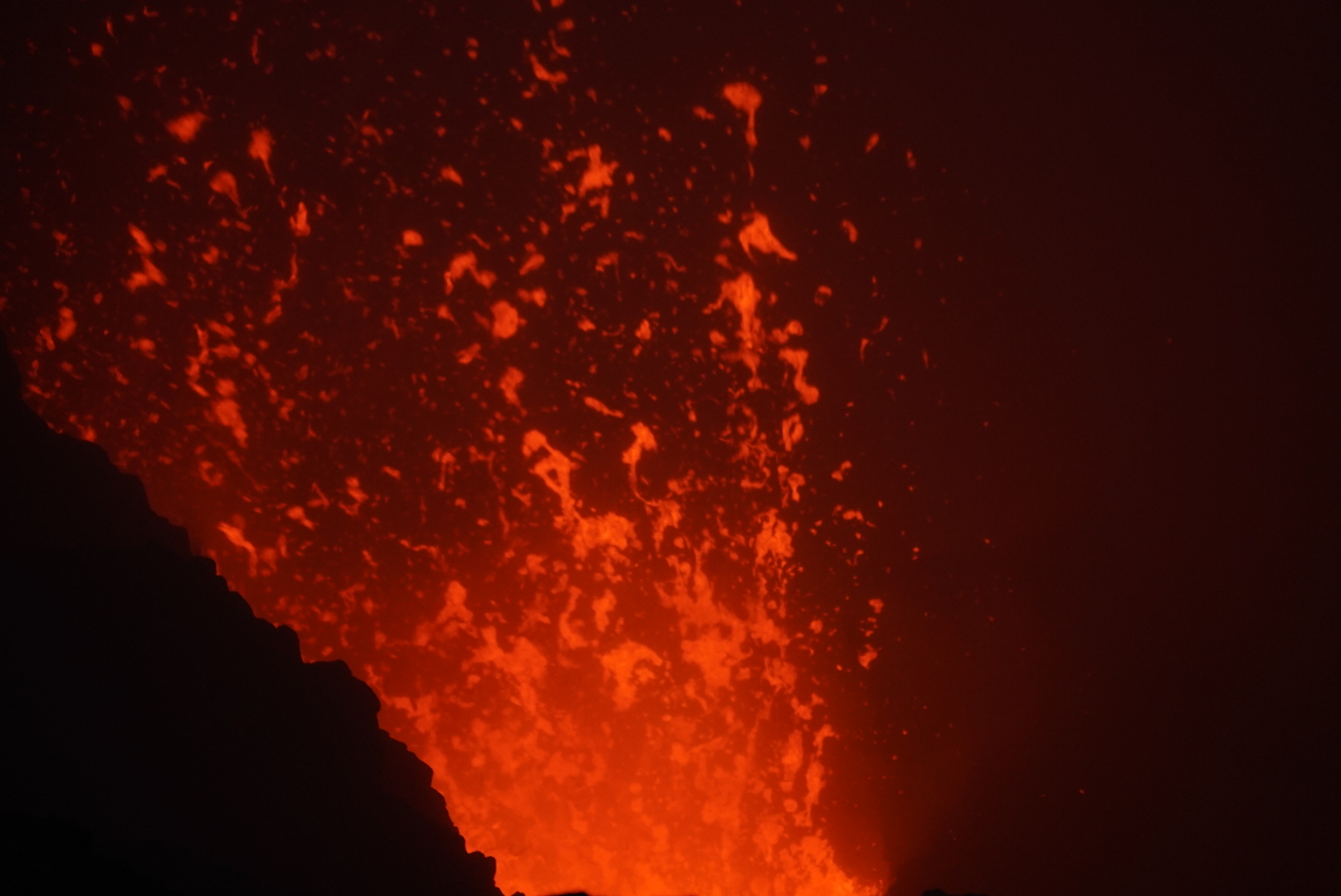

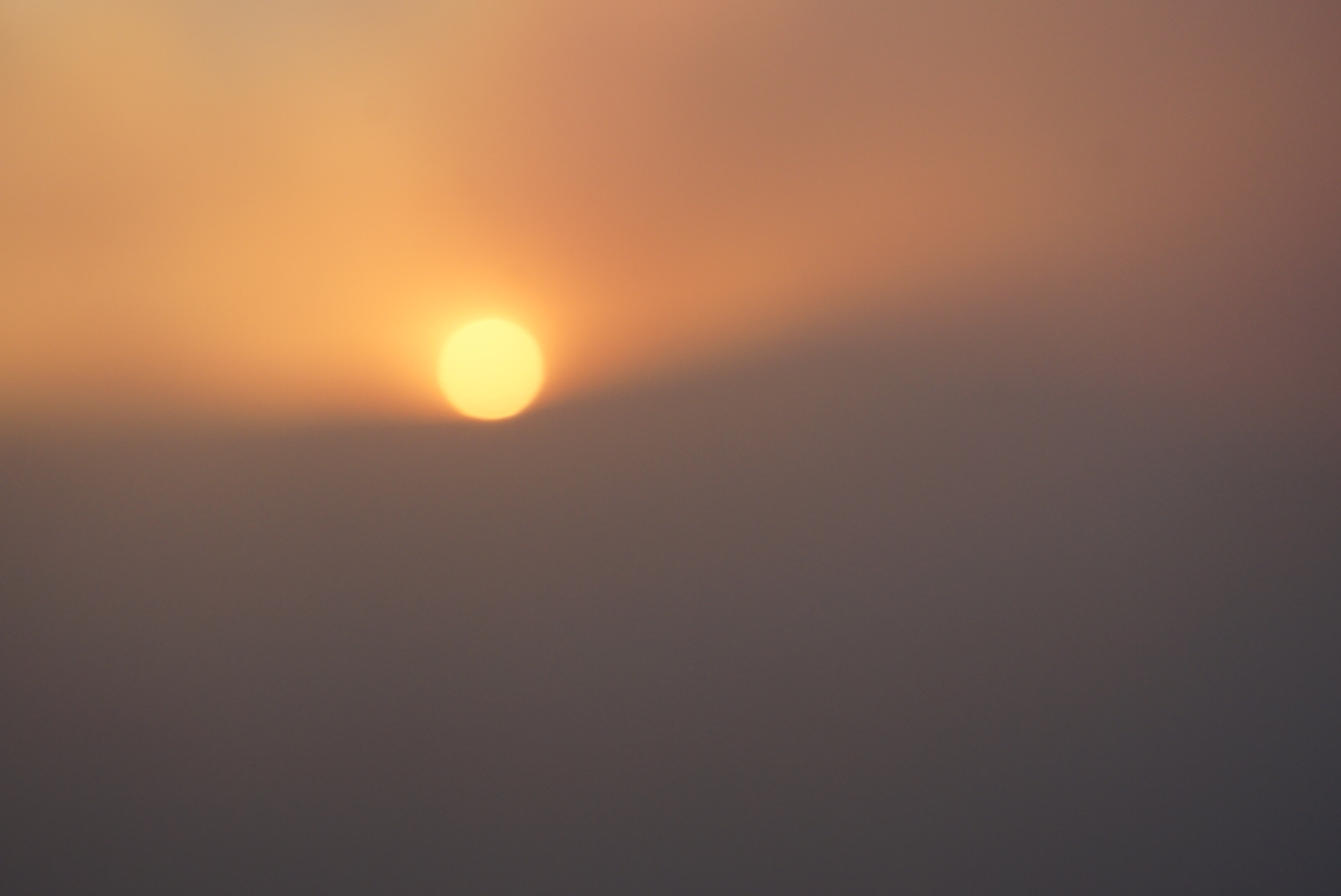

The next day, our last in Port Resolution and on Tanna, I had an met with Alfred. He was born on Tanna and wanted to show me how to build a slingshot. I brought my old speargun rubbers with me, as I had heard that they were best suited for slingshot building. However, when Alfred saw them, he became thoughtful for a moment and then offered me a trade: He wanted to keep the old rubbers for his speergun and let me have his own slingshot in return. – How great?! Deal!
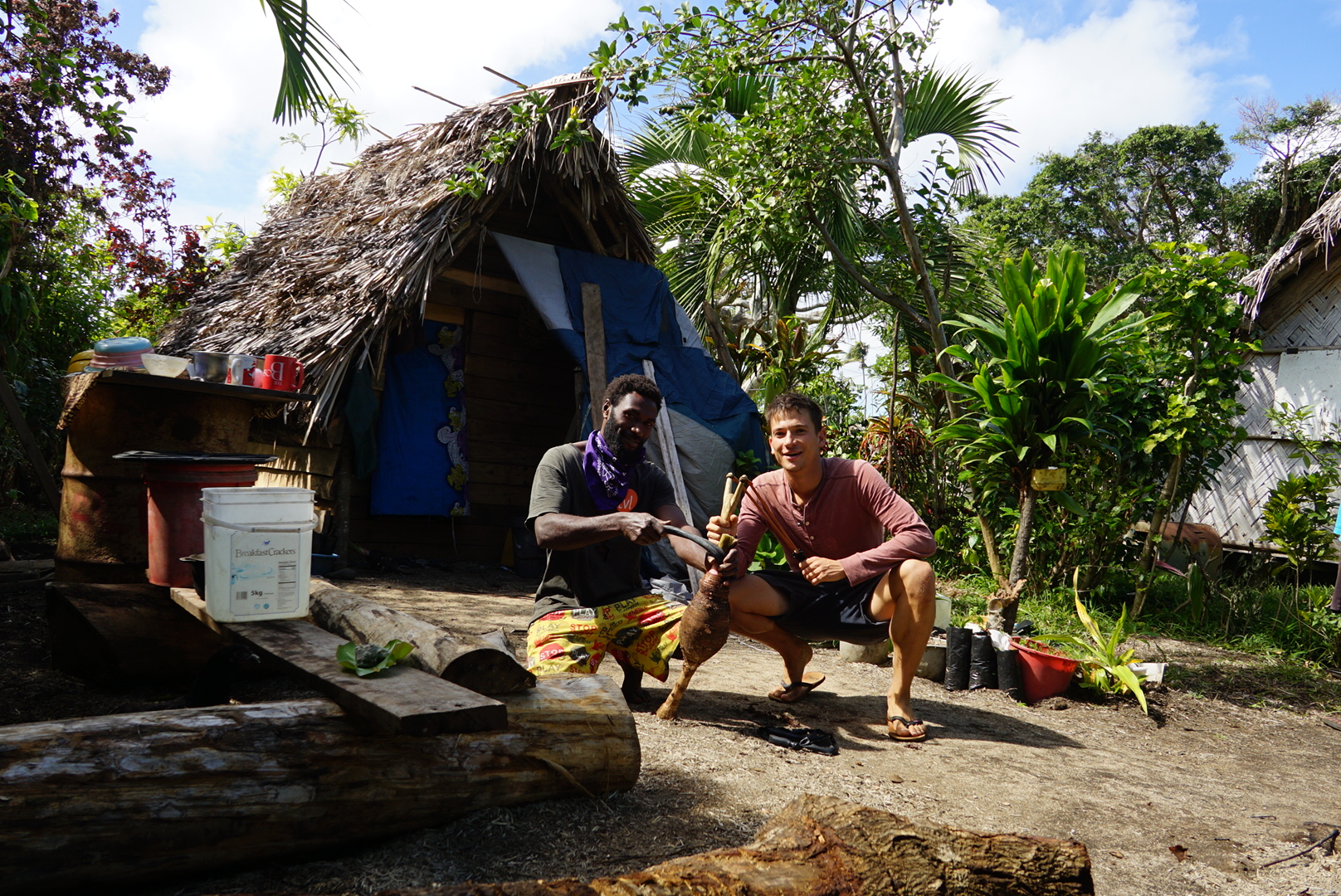



Since we had nothing else to do now, Alfred invited me for a walk to his garden and his favorite place at the sea. On the way, Alfred explained me all kinds of things about the island culture, the „discovery“ by Captain Cook and the influence of the missionaries.
This Blog is made possible by
Gipser Haustechnik GmbH
Die Gipser Haustechnik GmbH is a family buisnes from Schondorf – my hometown. Since 1934 they realise dreams and ideas in all topics of building services engeneering


He showed me various plants and fruits, in his garden we cut a few new cuttings of taro and sugar cane and planted them in a hole quickly dug with a machete. He explained to me: “Life here is calm and relaxed. But if you are lazy, you’ll become hungry. Planting a new plants is an important daily task. If you don’t plant, you won’t have anything to eat in the new year.
Everyone in the village has a special task, a totem. It is passed on withinin the family. For example, Stanley’s totem is the boat – he is responsible for the sailors. Others may have the banana totem. They are experts and take care of the preservation of the banana tree. There are the fishermen, butchers, constructors, vegetable specialists, and so on.
To exchange ideas, the men meet once a day, at four o’clock, at the Nakamal. These are sacred places, always in front of a certain tree, the Nabuk. Kava is drunk and the most important issues of the day are discussed. Traditionally, women are not allowed to participate. In the meantime, however, there are also women’s meetings in the village, Alfred says. And he and his wife also enjoy drinking kava in private at home.



Alfred’s totem is the sea. As we sat at his favorite spot, he showed me his own marine reserve. All water activity is prohibited here. He observes the coral growth and the welfare of the fish. From time to time he has taken samples with scientists and participated in conferences at the capital.
While we sat, chewing sugar cane and coconuts by the water, we also talked about climate change and its consequences: We; Europeans, Americans, Australians, and Asians are largely responsible for the warming of the earth and rising sea levels. The islanders, on the other hand, live in harmony with nature but must bear most of the consequences.
In the last 10 years, about 10 meters of Tannas‘ coastline disappeared into the sea. The number of cyclones, which have always been part of Melanesian life, continue to increase in frequency and intensity.: The last cyclone in March this year destroyed not only the villages, but also the entire harvest. Still, one can hardly find any fruit on the island.
Alfred knows all this but does not blame me or „the West“. „A change is happening. We must do everything possible to inform and educate in order to stop or slow down this change. But that only works if we talk to each other and work together.“ On his island, he wants to combine traditional wisdom with modern knowledge to find a solution for his people.


Unfortunately, all the nice experiences from Vanuatu were covered with a light, dark shadow during the last days: For the first time ever on my trip I had such big problems with a crewmember, that I had to send her off the boat in the next port. What initially promised great fun turned into such a disaster that we even had to spend the last hours at the local police station!
For the planned passage from New Caledonia via Vanuatu to Papua New Guinea, Annika and I were looking for a third crew member to support us. About a week before departure in New Caledonia, we ran into an Australian girl in front of the showers. She seemed to be a perfect fit. Same age, energetic, some sailing experience and most importantly: motivated!
We even talked about her staying on board until Indonesia. But already in New Caledonia we had our first points of contention: During our bulk grocery run, we had specially discussed whether it is worth to us to buy a honey for 20€ or a butter for 10€. We agreed: „it’s worth it to us“.
Later, back on board it turned out that she had simply stolen the items! In Vanuatu, when visiting the volcano she wanted to fool the ticket sellers and cheat the entrance fee. – Each time I tried to explain to her that I do not like that attitude and that she has to behave honestly and sincerely as long as she is staying on bord WASA and we are appearing as one group.
The Australian, on the other hand, told Annika that she does not like men no more, and certainly not men who have any kind of authority. Even more: “Her way of doing things, that’s her free spirit” – One can imagine that our two sides did not fit together so well.
The next morning, I sought conversation and explained to her that she would have to get off the boat at the next big port, Port Villa. – I could not have kicked her out in Port Resolution; there was neither supermarket nor hotel, nor Internet nor ATM.
The next few days were an effort without end. The crossing to Port Villa took one and a half days and also I gave her two more days to organize her things and leave the boat. Whith the remaining time on tanna, that have been almost five days during which she tried to provoke me secretly and to play Annika and me against each other.
She failed and luckily found accommodation quite quickly, but tried to get away without paying me back her dept. She demanded to be able to get all her things off the boat first – without my presence on board. Afterwards she would then transfer the money to me. – hahaha, good joke!
I denied.
Since she was not willing to pay even after various compromise offers from Annika and me, in the end we only could continue via the local police. I was honestly embarrassed, but the policeman listened to everything for over an hour and finally decided that she would have to transfer the money before she could get her luggage.
Since a few days now, Annika and I are back on the boat as a couple and enjoy the last days before she flies back from Port Villa to Germany in mid-August. For me, this means that I have to look for new crew once again:
There are still about 20 sailing days to go before Indonesia is reached. The distance can be divided into “ smaller” hops either in Papua New Guinea, or on Thursday Island/ Australia.
If you are about the same age and think, this could be an adventure for you, send me an e -mail!! 😉

